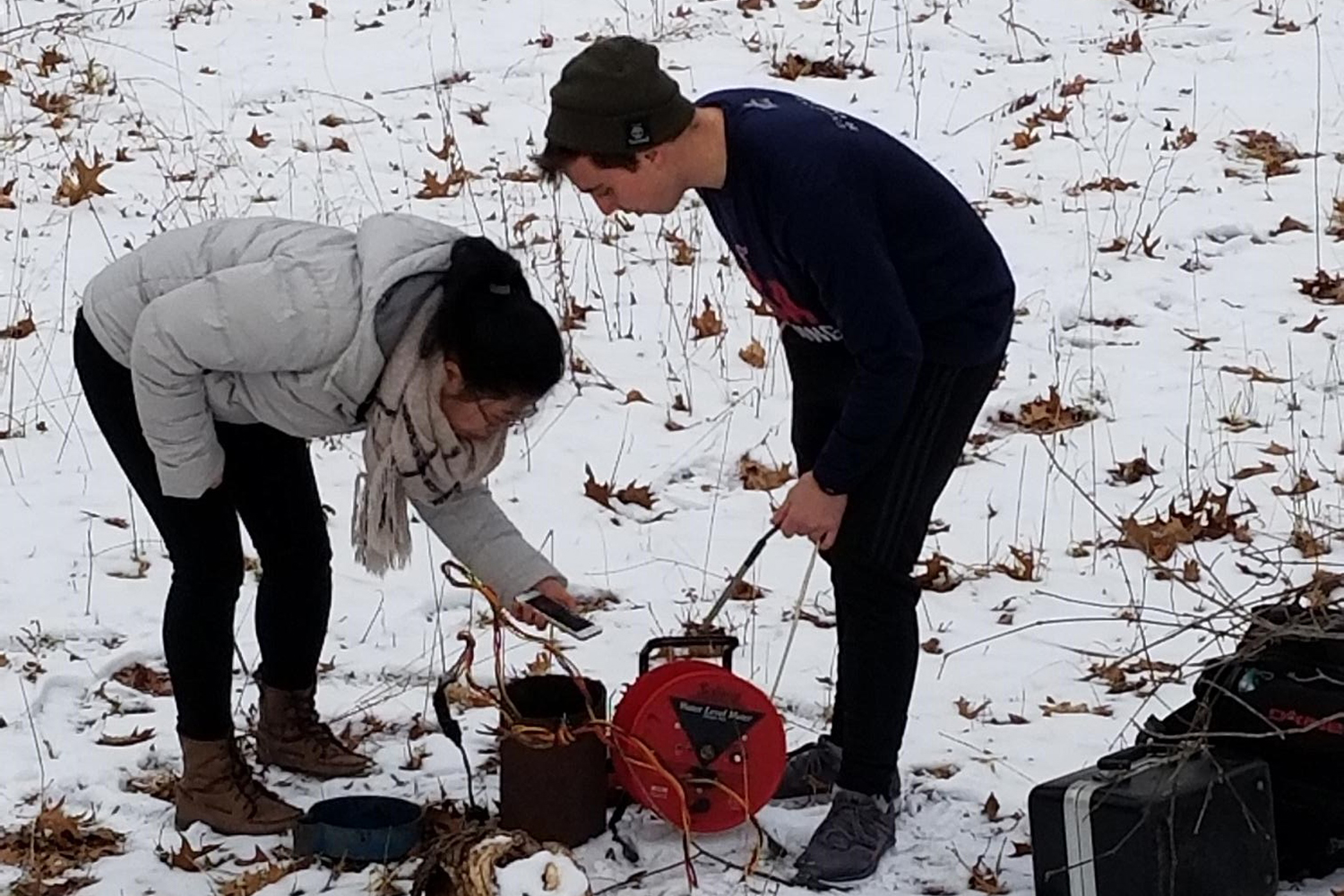Linying Zhang, a Ph.D. student from Kyoto University in Japan, recently visited the College for a month-long internship on rain gardens and bioretention with Extension Educator Mike Dietz. Bioretention areas are swales planted with vegetation to collect and infiltrate storm water. The term bioretention area is used for larger engineered spaces, and smaller ones are called rain gardens.
Zhang is in the first year of her Ph.D. program. She grew up Fuzhou, a region in southeastern China. She received her baccalaureate and master’s degree in landscape architecture from Fujian Agriculture and Forestry University in Fuzhou. After seeing photos of Japanese gardens in a textbook, she says, “I decided I must go there to study.” At Kyoto, she is studying global environment studies with a concentration in landscape ecology and planning, specifically as it relates to landscape architecture. Her research focuses on rain gardens and sustainable storm water management in Japan. She expects to complete her degree in 2020.
As part of her program at Kyoto University, Zhang is required to complete an internship. Surfing the internet one day, she found the website for NEMO (Nonpoint Education for Municipal Officials), a UConn Extension program offered through the Center for Land Use Education and Research (CLEAR). It appeared to Zhang that Dietz’s research aligned with her interests, and emailed him, asking if she might study with him.



